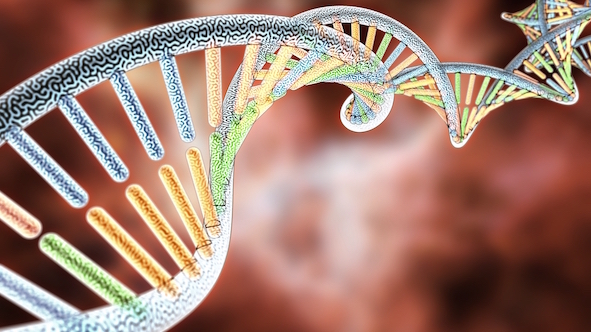
Gene therapies will provide a valid treatment option for patients that have developed resistance to chemotherapies across several cancer indications. With patient access set to increase over the next decade, these therapies are expected to eliminate the need for further treatments and reduce the cost of disease management, says GlobalData, an analytics company.
The company’s latest report, ‘Gene Therapy in Oncology – Thematic Research’, reveals that total sales of in-vivo gene therapies are forecast to reach over $7bn by 2027 across the 8MM, with the therapeutic oligonucleotide market forecast to reach $4.5 billion by 2027 globally. 8MM comprises the eight major pharmaceutical markets (US, France, Germany, Italy, Spain, the UK, Japan, and China
James Donagher, MRes, Oncology Analyst at GlobalData, outlines some of the key expectations for the gene therapy market and says, "The therapeutic oligonucleotide market will be galvanised by the success of COVID-19 messenger ribonucleic acid (mRNA) vaccines, which share the same technology. Despite the lack of approved therapeutic oligonucleotides, these molecules have the potential to meet unmet clinical needs, as they have many mechanisms of action (MOAs) and can bind to a multitude of different molecules, beyond what is accessible to conventional therapies."
Donagher adds, “One drawback is the high cost of gene therapies once they get to market. Nonetheless, key opinion leaders believe gene therapies have the potential to be a one-time, curative treatment. Specialised designations and expedited programmes for approval will accelerate patient access to gene therapies."
“Along with significant industrial investment in the field, regulatory bodies have now recognised the potential of gene therapies by creating specialised designations for gene therapy products such as the RMAT designation in the US. As many of these therapies address unmet needs or target orphan indications, the 8MM have set up programmes to expedite gene therapy approvals. This month, Japan approved its first-ever oncolytic virus, which shows the efforts to accelerate therapy access to patients with life-threatening conditions," Donagher mentions.
According to Donagher, safety concerns such as insertional oncogenesis surrounding viral vectors persist, thus cancer patients will benefit from therapies with novel delivery systems and mechanisms of action (MOAs). Across the 8MM, there are 81 in-vivo gene therapies in development, including both viral and non-viral vector products. Several exciting agents in development will broaden treatment options for patients with currently underserved cancer indications such as relapsed/refractory melanoma. Developers have harnessed the therapeutic potential of viruses to deliver exogenous genetic material into cells to treat a disease, however, this decade could see the uprise of non-viral vector gene therapy products. Despite the currently inefficient delivery of transgenes to target cells, non-viral vectors are easier to produce, have a bigger window to genetically manipulate, and will have a lower list price once marketed compared to viral vector products.




